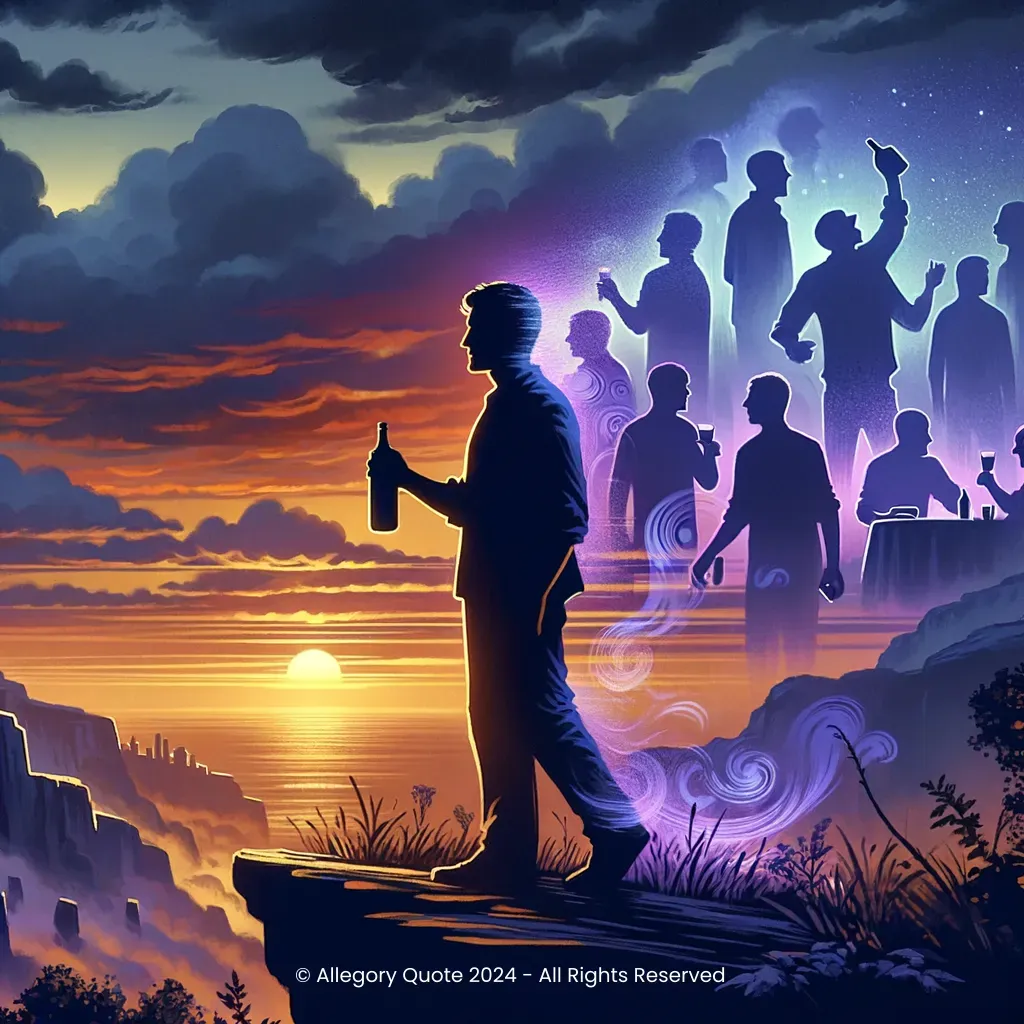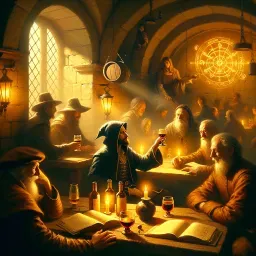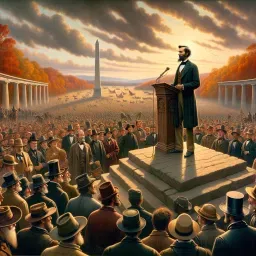There's nothing left to do but get drunk

0
0
0
0
- Meaning
- This phrase suggests a moment of utter despair or surrender, where the speaker feels that all hope or viable actions have been exhausted, leaving intoxication as the only relief or escape. It often conveys an underlying commentary on dealing with life's difficulties or may symbolize a retreat from reality.
- Allegory
- The person at the edge of the cliff symbolizes the brink of despair and resignation, where the phrase suggests surrendering to alcohol as a coping mechanism. The somber sky reflects the melancholic mood, while the bottle represents the chosen but ineffective escape route. The ghostly scenes of convivial gatherings juxtaposed against the solitary figure emphasize the isolation and loneliness that often come with using drinking as an escape, despite its apparent allure of solace and camaraderie. The image encapsulates the phrase's essence by portraying the emotional conflict and the fleeting refuge found in inebriation.
- Applicability
- In daily life, this phrase might be applied metaphorically to a situation where someone feels stuck and sees no constructive way forward. While the literal action is undesirable, the sentiment can serve as a humorous or hyperbolic remark to signal extreme frustration or resignation, encouraging the search for alternative solutions in a challenging scenario.
- Impact
- The phrase (or its variations) has had a significant impact on cultural dialogues about coping mechanisms, often appearing in films, books, and songs as a shorthand for a character's struggle or as a comedic line to underscore challenging situations. It also opens discussions about mental health and the ways people deal with stress.
- Historical Context
- The historical context of this sentiment could be speculative but traces back to early 20th-century literary circles, often marked by existential discussions and a bohemian lifestyle where alcohol was a prevalent escape for writers and artists grappling with life's complexities.
- Criticisms
- Criticisms of this phrase stem from its potential to glamorize or trivialize excessive drinking and unhealthy coping mechanisms. Many argue that it reflects a negative attitude towards dealing with problems in a constructive manner.
- Variations
- Variations of this phrase exist across different cultures, often reflecting a universal human experience of seeking solace in inebriation. For instance, the Russian saying "Пьяному море по колено" ("A drunk man feels the ocean to be knee-deep") suggests that alcohol imparts a false sense of invulnerability.
-

What is right and what is practicable are two different things.
-

It is not strange... to mistake change for progress.
-

Politics, when I am in it, it makes me sick.
-

In vino veritas.
-

Fourscore and seven years ago our fathers brought forth on this continent, a new nation, conceived in Liberty, and dedicated to the proposition that all men are created equal.
-

I have always done my duty. I am ready to die. My only regret is for the friends I leave behind me.
-

Abandon all hope, ye who enter here.
-

He serves his party best who serves the country best.
-

No president who performs his duties faithfully and conscientiously can have any leisure.
-

Speak softly and carry a big stick; you will go far.
-

It is easier to do a job right than to explain why you didn't.
No Comments